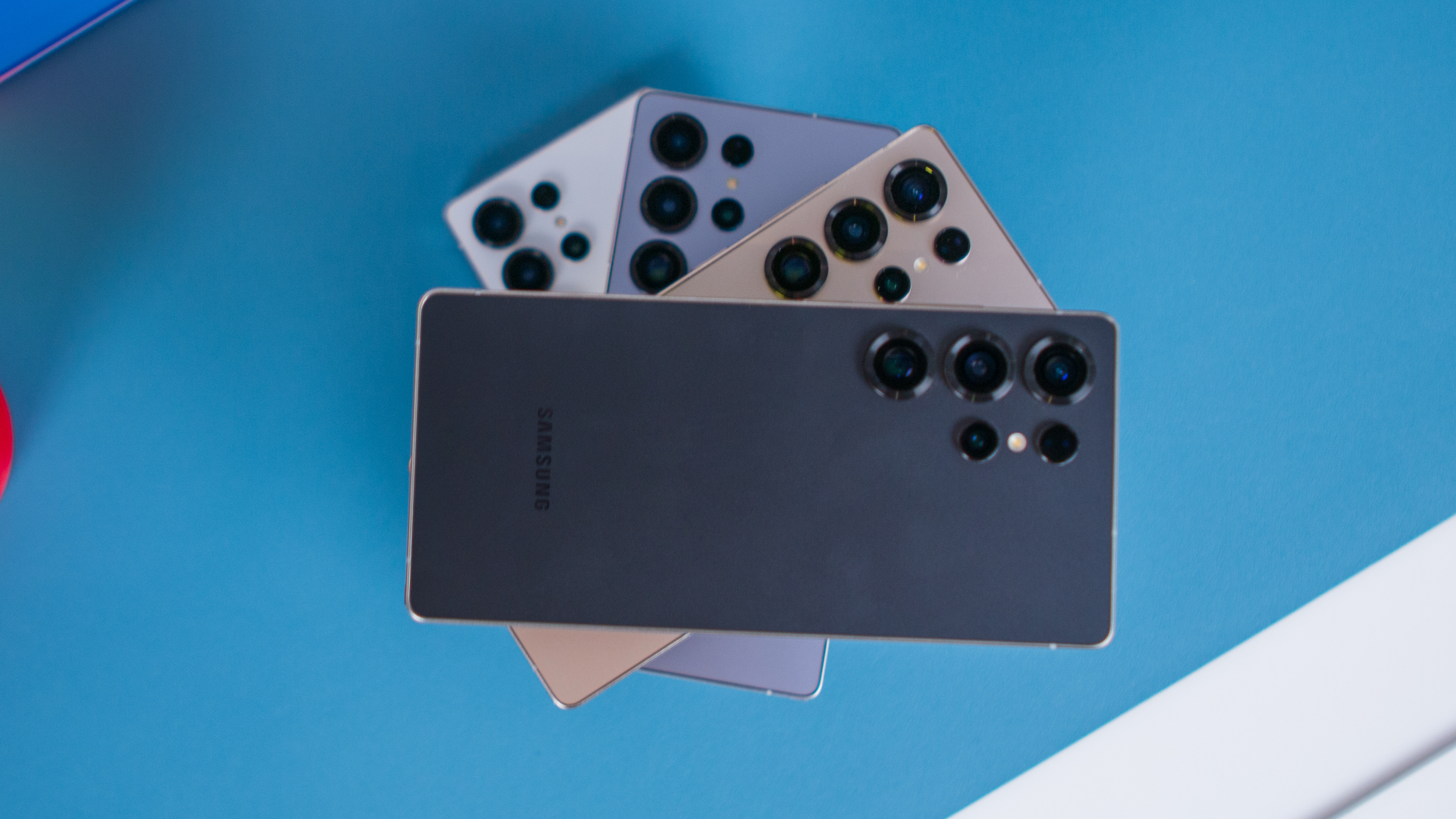Samsung Galaxy S21 Ultra vs. iPhone 13 Pro Max
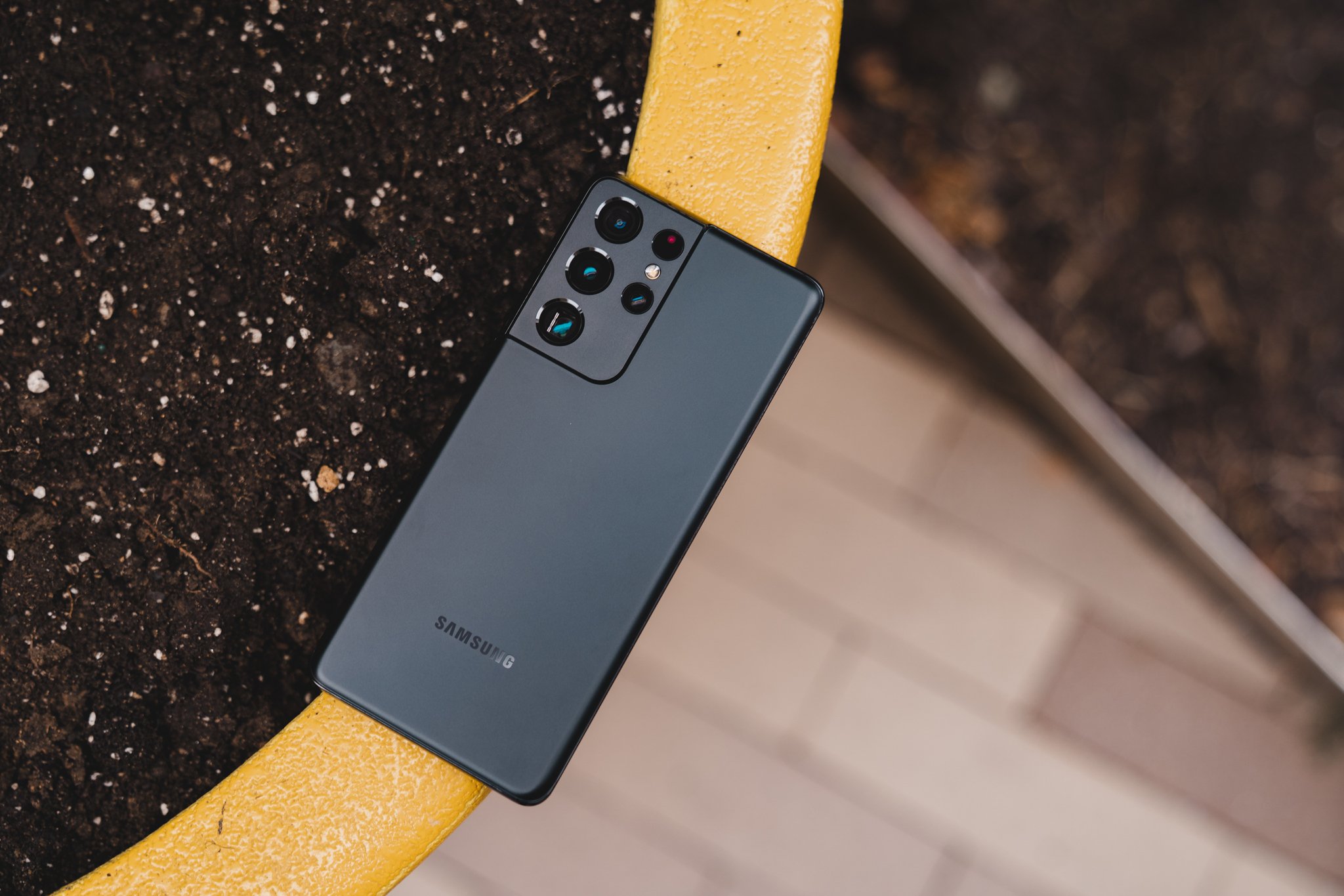
Galaxy S21 Ultra
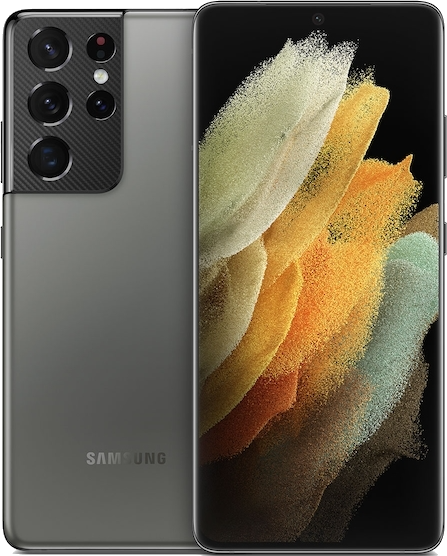
The Galaxy S21 Ultra continues to set the standard for Android. You get the latest hardware that breezes through demanding games, a 120Hz screen that's one of the best you'll find today, cameras that take beautiful photos in any condition, water-resistance, wireless charging, and three Android version updates.
Galaxy S21 Ultra
The default choice
iPhone 13 Pro Max
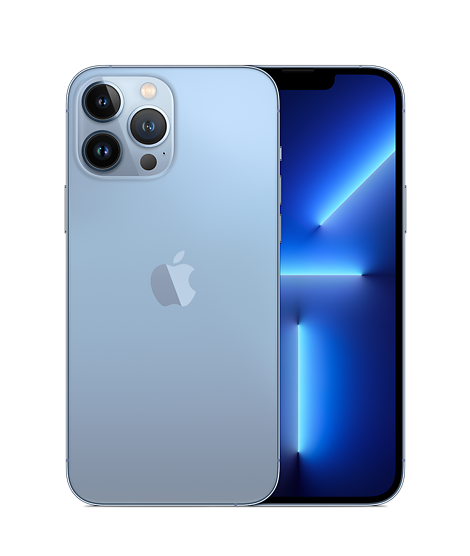
The iPhone 13 Pro Max offers a familiar design, but packs many under-the-hood changes. It features the fastest internal hardware available, and for the first time for iPhone, a 120Hz screen. You also get outstanding cameras with exciting new video recording modes, five years of software updates, and the best battery life of any high-end phone.
iPhone 13 Pro Max
Outstanding battery life
The Galaxy S21 Ultra continues to be one of the best Android phones available. It has the latest internal hardware, a gorgeous screen with 120Hz refresh, outstanding cameras, and a large battery that lasts all day. But if your primary consideration is battery life, you may want to take a look at the iPhone 13 Pro Max. The phone also features a 120Hz screen and a powerful chipset. And right now, it's the flagship to beat when it comes to battery longevity.
Galaxy S21 Ultra vs. iPhone 13 Pro Max: Design and screen
If you're in the market for a flagship phone, the first place to start would be the Galaxy S21 series. Samsung hasn't altered the formula too much from last year, instead offering a refined flagship with the latest hardware, sublime 120Hz AMOLED screens, and amazing cameras. The S21 Ultra kicks things up a gear with its cameras and large 6.8-inch QHD+ panel, delivering the features you're looking for in a flagship.
Both phones look great, but the S21 Ultra has an edge in terms of design.
This year, the iPhone 13 Pro Max also has a lot going for it. While the design hasn't changed too much from last year, there are a lot of under-the-hood changes. For starters, the new A15 Bionic is ridiculously good. There's a larger battery that lasts two days, and the screen now goes up to 120Hz.
Let's start with the design: The S21 Ultra has an attractive chassis with smooth curves and a new metal camera housing toward the back that's quite striking. The iPhone 13 Pro Max has flat sides and a similar camera housing as last year, and the matte finish on the back allows the color underneath to diffuse. That said, I think the S21 Ultra has a slender edge in terms of styling; that camera housing looks more distinctive, and there's no ugly notch at the front.
The S21 Ultra and iPhone 13 Pro Max are two of the largest phones around. The S21 is taller and narrower, while the iPhone is shorter and significantly wider. Yet ,it's thinner at 7.7mm, with the S21 Ultra measuring 8.9mm. The stainless steel frame of the iPhone 13 Pro Max makes it heavier at 240g, and even though the S21 Ultra has a larger 5000mAh battery, it weighs 228g.
Get the latest news from Android Central, your trusted companion in the world of Android
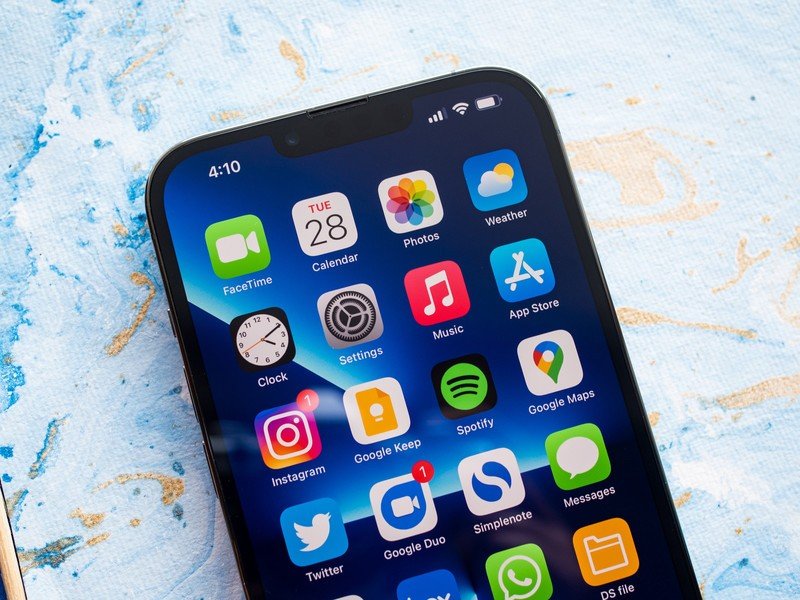
Coming over to the front, the distinctive feature on the iPhone 13 Pro Max is the notch. Even though it's marginally shorter than last year, it still looks unsightly, particularly against the S21 Ultra and its tiny cutout. Sure, Face ID is the most secure facial authentication system around, and it needs a lot of sensors to work reliably. But the downside is a large cutout at the front of the phone.
The iPhone 13 Pro Max also has a 120Hz screen for the first time, but it's limited right now.
As for the screen, the S21 Ultra has a 6.8-inch QHD+ AMOLED panel with a 120Hz refresh rate, with the iPhone 13 Pro Max offering a 6.7-inch OLED screen that also goes to 120Hz — a first for the series. The ProMotion tech makes a genuine difference, making interactions much more fluid.
However, the 120Hz mode is limited right now on the iPhone, with most third-party games and services not able to take advantage of the high refresh. Another annoying omission is that iOS still doesn't have an always-on mode.
You won't find any such problems on the S21 Ultra. The screen goes up to 120Hz so it can handle everything from browsing in Chrome to scrolling through Twitter, Instagram, and playing select games with unlocked framerates. In short, it's an absolute joy to use. Both devices also have great stereo sound and the latest glass protection.
Galaxy S21 Ultra vs. iPhone 13 Pro Max: Hardware
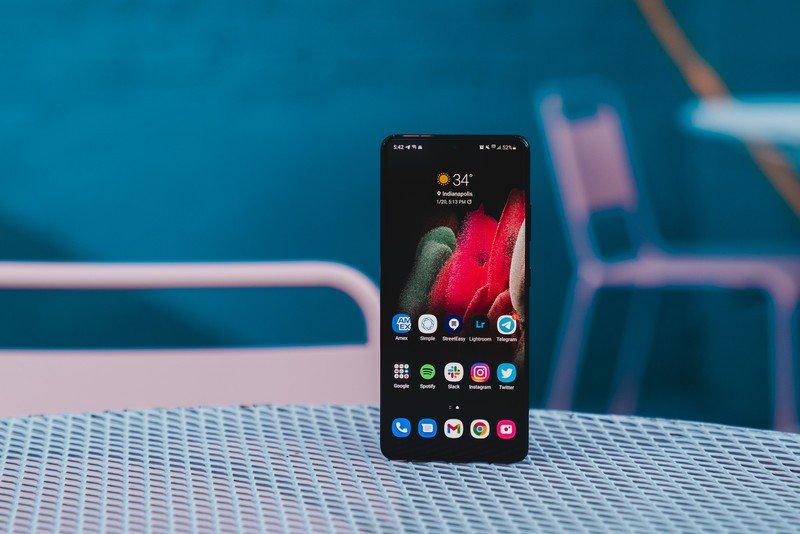
Switching over to the internal hardware, both devices offer the latest and greatest. In the case of the S21 Ultra, that means the Snapdragon 888 chipset in North America and the Exynos 2100 in other global markets. The iPhone 13 Pro Max also gets new hardware in the form of the A15 Bionic, and it has a lot to offer.
The iPhone 13 Pro Max has a distinct lead on the hardware front — A15 Bionic is a monster.
Obviously, the Snapdragon 888 isn't short on power. In fact, it blazes through anything you throw at it. Still, the A15 Bionic has a distinct advantage, delivering better scores across the board. Both platforms are built on a 5nm node, but the A15 has an edge because of its custom core design and the ability to transfer that power a little more efficiently.
The S21 Ultra gets 12GB of RAM by default, and while the iPhone 13 Pro Max has just 6GB of RAM, that's more than adequate for multitasking and any other use case on iOS. Similarly, both phones come with 128GB of storage as standard, and you won't find 3.5mm jacks or microSD slots here — that's all in the past.
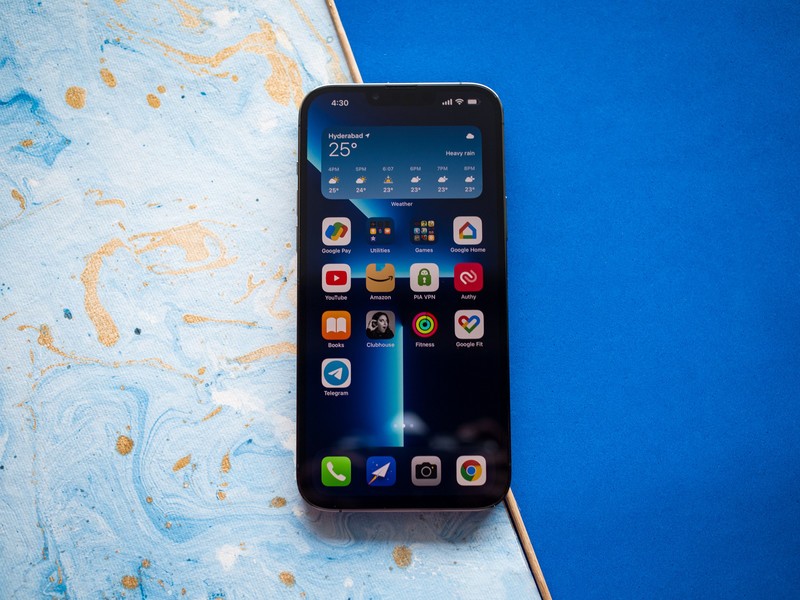
You'll also find Sub-6 and mmWave 5G connectivity as standard on both devices in the U.S., with global variants featuring Sub-6. The S21 Ultra gets Wi-Fi 6E and Bluetooth 5.2, with the iPhone offering Wi-Fi 6 and Bluetooth 5.0. And as you'd imagine, in a 2021 flagship, both phones have IP68 water resistance as standard.
Want the best battery life? You'll have to switch to the iPhone.
Of course, when it comes to the battery, the iPhone 13 Pro Max has a clear lead this year. That's down to the larger 4352mAh battery and all the optimizations with the A15 Bionic and iOS 15. The iPhone 13 Pro Max manages to deliver eight hours of screen-on-time consistently, and that's easily two hours more than the S21 Ultra can handle.
When it comes to charging, both devices are on a similar footing. The S21 Ultra goes up to 25W wired and 15W wireless over the Qi protocol, while the iPhone 13 Pro Max charges at 27W using the PD standard and 15W via MagSafe. But the biggest issue with the iPhone is that it continues to use the Lightning connector; with most devices switching over to USB-C as standard, it's annoying that iPhones still charge over Lightning.
| Category | Samsung Galaxy S21 Ultra | iPhone 13 Pro Max |
|---|---|---|
| Operating system | Android 11 One UI 3.0 | iOS 15 |
| Display | 6.8-inch 120Hz Dynamic AMOLED 3088x1440 (20:9) HDR10+ Gorilla Glass Victus | 6.8-inch 120Hz OLED 2778x1284 (19.5:9) HDR10, Dolby Vision Ceramic Shield |
| Chipset (NA) | Snapdragon 888 1 x 2.84GHz X1 3 x 2.42GHz A78 4 x 1.80GHz A55 Adreno 660 5nm | Apple A15 Bionic 2 x 3.22GHz Avalanche 4 x 2.40GHz Blizzard 5-core GPU 5nm |
| RAM | 12GB/16GB LPDDR5 | 6GB |
| Storage | 128GB/256GB/512GB UFS3.1 | 128GB/256GB/512GB/1TB |
| MicroSD slot | ❌ | ❌ |
| Rear camera 1 | 108MP f/1.8, OIS 8K at 30fps 4K at 60fps | 12MP f/1.5, sensor-shift OIS 4K at 60fps Dolby Vision Cinematic mode |
| Rear camera 2 | 10MP, f/3.0 telephoto, OIS 5x optical zoom | 12MP, f/2.8 telephoto, OIS 3x optical zoom |
| Rear camera 3 | 12MP, f/2.2 wide-angle | 12MP, f/1.8 wide-angle |
| Rear camera 4 | 10MP, f/2.2 telephoto 10x optical zoom | ❌ |
| Front camera | 40MP f/2.2 auto focus | 12MP f/2.2 auto focus |
| Connectivity | 5G (Sub-6 and mmWave) Wi-Fi 6E MU-MIMO Bluetooth 5.1 LE, NFC, GPS | 5G (Sub-6 and mmWave) Wi-Fi 6 MU-MIMO Bluetooth 5.0 LE, NFC, GPS |
| Audio | USB-C Stereo speakers | Lightning Stereo speakers |
| Battery | 5000mAh Non-removable | 4352mAh Non-removable |
| Charging | USB-C PD3.0 Fast charge (25W) Wireless charging (15W) | Lightning Fast charge (27W) MagSafe wireless (15W) |
| Water resistance | IP68 | IP68 |
| Security | In-display fingerprint sensor Face unlock | Face ID |
| Colors | Phantom Black, Phantom Silver, Phantom Titanium, Phantom Navy | Graphite, Sierra Blue, Gold, Silver |
| Dimensions | 165.1 x 75.6 x 8.9mm 228g | 160.8 x 78.1 x 7.7mm 240g |
Galaxy S21 Ultra vs. iPhone 13 Pro Max: Software
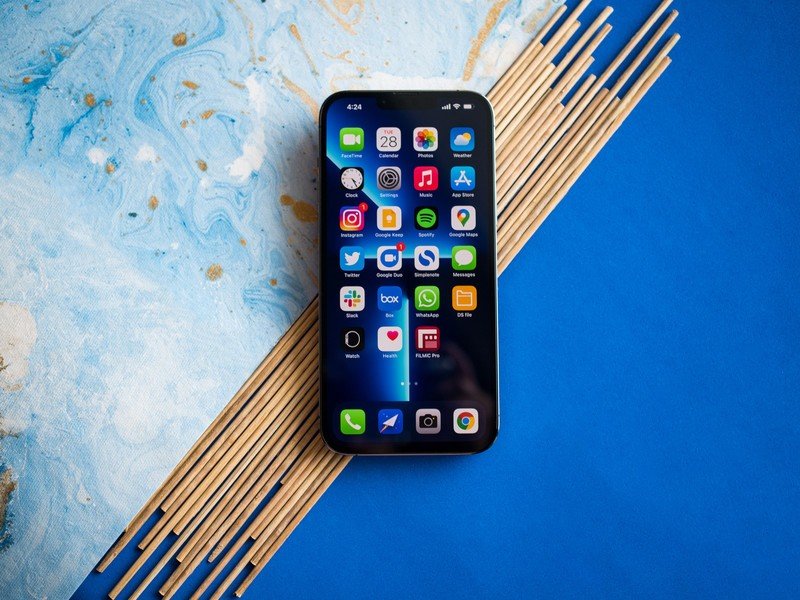
Samsung made a lot of positive strides in terms of software over the last two years, and One UI 4 brings a lot of exciting features and integrates all the new additions from Android 12. Samsung is already testing the One UI 4 beta on the Galaxy S21 series, and a stable build should be available before the end of the year.
Samsung made a lot of positive moves here, but iPhones still get more updates.
When it comes to picking between Android and iOS, there are a few things to consider. Both platforms offer a similar set of features around privacy and security, and while file system access is still annoying on iOS, it isn't as closed-off as it used to be. However, there are several key differences in notification management; Android is still far and above in the lead here, but with new features like Focus, iOS isn't too far behind.
There isn't a marquee feature on iOS that's missing on Android and vice versa. I prefer the way Android handles notifications and the inherent customizability on offer. Still, iOS has a lot going for it — the Private Relay and Hide My Email features safeguard your privacy, and it has a clear lead in terms of long-term software updates.
Samsung now guarantees three years of Android platform updates for its flagships, and the S21 Ultra will make the switch to Android 14 once that rolls out in about two years. The phone will also get four years of security updates, and while that's great to see, it's outdone by the iPhone 13 Pro Max, which will receive five platform updates and security updates for longer.
Galaxy S21 Ultra vs. iPhone 13 Pro Max: It's all about the ecosystem
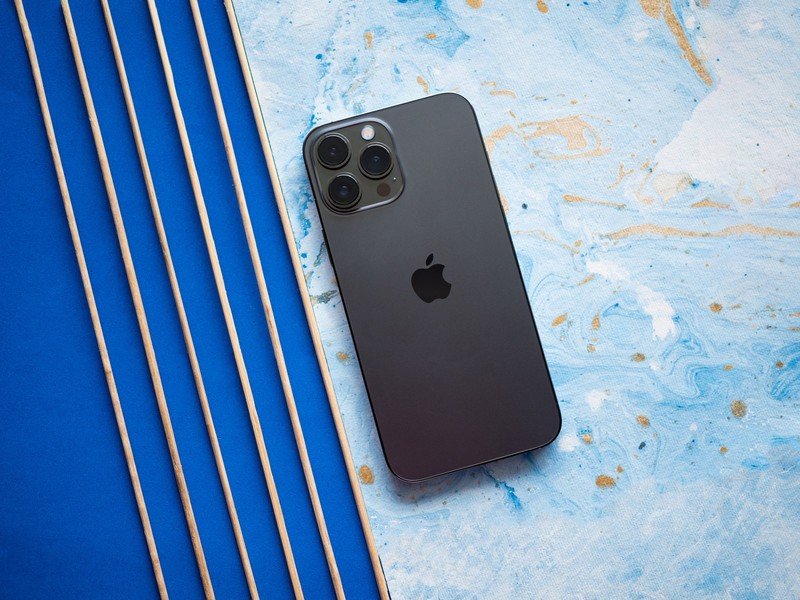
When talking about flagships — particularly from these two brands — there's very little that's at fault. The S21 Ultra and iPhone 13 Pro Max offer refined designs with the latest hardware, stunning 120Hz screens, and incredible cameras.
Choosing between the two phones comes down to whether you want to switch to iOS.
On that note, both phones take great photos in any lighting scenario. I'll have more to share on this shortly, but there isn't much to differentiate the two devices in terms of photos. Obviously, the iPhone 13 Pro Max has the edge in video recording, with Cinematic mode adding a new dimension to its already strong arsenal.
With the S21 Ultra, you're getting a beautiful design, standout hardware with global 5G, 120Hz AMOLED screen, and all-day battery life. The iPhone 13 Pro Max does all of that while delivering faster hardware, better battery life, cameras that are ideal for recording video, and long-term updates.
Choosing between the two is down to more than the hardware; it's about the software and the broader ecosystem. Android is as diverse as it is extensible, but Google hasn't done a great job building out the smartwatch and tablet ecosystem. That's not an issue with the iPhone 13 Pro Max. While the software isn't as customizable as Android and notification management isn't as seamless, it ties into the Apple ecosystem of devices.
So if you just want an Android phone that's better than just about any other in the market today, the S21 Ultra is a great choice. But if you're willing to switch to iOS, the iPhone 13 Pro Max has a lot to offer.

The best Android phone to buy
If you're switching from an older Android phone, you will love what the S21 Ultra has to offer. The design is gorgeous, the hardware can handle anything you throw at it, the cameras take incredible photos, and the phone lasts all day on a full charge. Samsung also offers three Android version updates as standard, and if you like the familiarity of Android, this is the phone to get.

The best iPhone right now
With the iPhone 13 Pro Max, you're getting a 120Hz screen for the first time, the fastest internal hardware of any phone today, great cameras with class-leading video recording, and the best battery life of any high-end phone. Combine that with five years of software updates and all the hardware extras you'd want in this category, and you get a great all-around device.

Harish Jonnalagadda is Android Central's Senior Editor overseeing mobile coverage. In his current role, he leads the site's coverage of Chinese phone brands, networking products, and AV gear. He has been testing phones for over a decade, and has extensive experience in mobile hardware and the global semiconductor industry. Contact him on Twitter at @chunkynerd.
